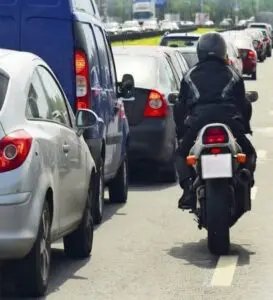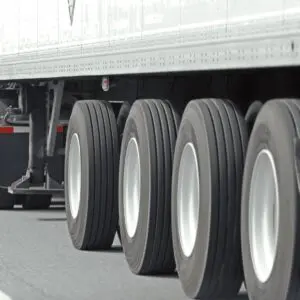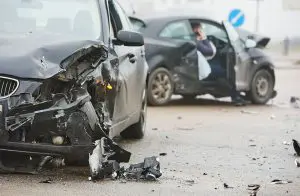What is Liability?
Liability is the legal responsibility for one’s acts or omissions; an obligation one is bound to by law to perform, typically involving the payment of monetary damages. It is one of the most significant words in the field of law.
According to Black’s Law Dictionary, liability is defined as “the state of being legally responsible for something, such as a debt or obligation.” As such, it assumes that a person is responsible for the harm they cause another. There are several different types of liability including contractual liability, when one party breaks a contract, tort liability from civil wrongs, or strict liability where a party is held responsible for damages, regardless of fault.
Liability is important in law because it ensures individuals are held responsible for their actions, and that injured parties receive compensation. An example of a liability is a driver who causes an accident by driving recklessly. The driver will be held liable for any resulting injuries to people and property. Understanding liability is essential for individuals, businesses, and legal professionals to navigate legal responsibilities they owe to others.
More information about Liability
Do Pedestrians Always Have the Right of Way?
When you first learned to drive, you may have been told pedestrians have the right of way. While this is generally true, pedestrians don’t always have the right of way. Of course, drivers must always be aware of their surroundings, including looking for pedestrians, but pedestrians must also be aware of traffic lights, crosswalks, and oncoming traffic.
If you were involved in a pedestrian accident and are questioning who has the right of way, Munley Law is here to help.
When Do Pedestrians Have the Right of Way?
Under Pennsylvania law, there are a few scenarios where pedestrians always have the right of way. However, it is ultimately the responsibility of drivers and pedestrians to practice safety on the roadways and be mindful before walking into traffic.
Crosswalks Without Signals
 If a pedestrian is at an unmarked crosswalk without traffic signals, […]
If a pedestrian is at an unmarked crosswalk without traffic signals, […]
More information about Liability
Is Lane Splitting Legal in Pennsylvania?
Have you ever been driving through a congested area and noticed a motorcyclist weaving in and out of traffic? While many motorcyclists think lane splitting should be common practice, it is currently illegal under Pennsylvania law.
If you are involved in a motorcycle accident and have been lane splitting, or hit a motorcyclist due to lane splitting, it can impact your personal injury claim.
What Is Lane Splitting?
Lane splitting, also known as white lining, occurs when a motorcyclist drives between two rows or lanes of traffic. Most commonly, riders split lanes when traffic is moving slowly or at a standstill. Lane splitting can occur on any type of road, including highways or rural roads.
 Lane splitting is not the only traffic maneuver you may see a biker make. Other practices include:
Lane splitting is not the only traffic maneuver you may see a biker make. Other practices include:
- Lane filtering: The rider moves between stopped traffic or slow-moving traffic
- Lane sharing: Multiple motorcyclists share the same lane and ride beside each other in a close formation
- Shoulder surfing: When a rider drives on the shoulder of the road
A University of California, […]
Read MoreMore information about Liability
Harrisburg Product Liability Lawyer
 Consumers have the right to expect the products they buy with their hard-earned money are safe and reliable. When a defective product causes an injury (and in many cases, a catastrophic injury) the results can be devastating. In these cases, the injured person may have a valid products liability claim against the product manufacturer, distributor, or retailer responsible for putting the dangerous product on the market.
Consumers have the right to expect the products they buy with their hard-earned money are safe and reliable. When a defective product causes an injury (and in many cases, a catastrophic injury) the results can be devastating. In these cases, the injured person may have a valid products liability claim against the product manufacturer, distributor, or retailer responsible for putting the dangerous product on the market.
If you or a loved one were injured by a dangerous product, call the Harrisburg products liability lawyers at Munley Law today. During a free initial consultation, our defective product attorneys will breakdown what your product liability case will look like and outline our legal strategy to secure a settlement or verdict in your favor.
What Is a Product Liability Claim?
A product liability claim is a legal action taken against any or all parties along the chain of manufacture of any product for damage caused by the product. […]
Read MoreMore information about Liability
Why Do Semi-Trucks Have Spikes on Their Wheels?
While driving down the highway, you may notice the semi-trucks beside you have what looks like spikes coming off their tire rims. But what purpose do those spike studs hold, and what happens if you get into an accident with a truck driver and those spikes cause damage?
Munley Law explains the purpose of these lug nut covers and your rights in semi-truck accidents.
What Are Wheel Spikes on Semi Trucks?
 Spikes on the wheels of semi-trucks are lug nut covers. They are meant to protect lug nuts from debris and corrosion over time but also have aesthetic appeal.
Spikes on the wheels of semi-trucks are lug nut covers. They are meant to protect lug nuts from debris and corrosion over time but also have aesthetic appeal.
While wheel spikes look intimidating, they are often made of weaker metals like aluminum alloys and even sometimes plastic. So, if your vehicle came into contact with one, the worst that would happen is a few scratches on your car. […]
Read MoreMore information about Liability
My Airbag Didn’t Go Off in a Car Accident. Can I Sue?
 Being in a car accident can be scary, especially when the safety features of your vehicle do not work the way they are supposed to. But what happens when you were in a car accident and your airbags didn’t go off and you suffered injuries. Can you sue?
Being in a car accident can be scary, especially when the safety features of your vehicle do not work the way they are supposed to. But what happens when you were in a car accident and your airbags didn’t go off and you suffered injuries. Can you sue?
In general, yes you can sue if your airbags didn’t deploy during a car accident. However, who you can sue depends on a variety of factors.
Munley Law Will Determine Why Your Airbags Did Not Deploy in a Car Accident
In 1998, the Intermodal Surface Transportation Efficiency Act of 1991 went into effect, requiring that all cars and light trucks sold in the United States to have air bags on both sides of the front seat.
Since then, all drivers have come to expect that when they are involved in a motor vehicle accident, […]
Read More








